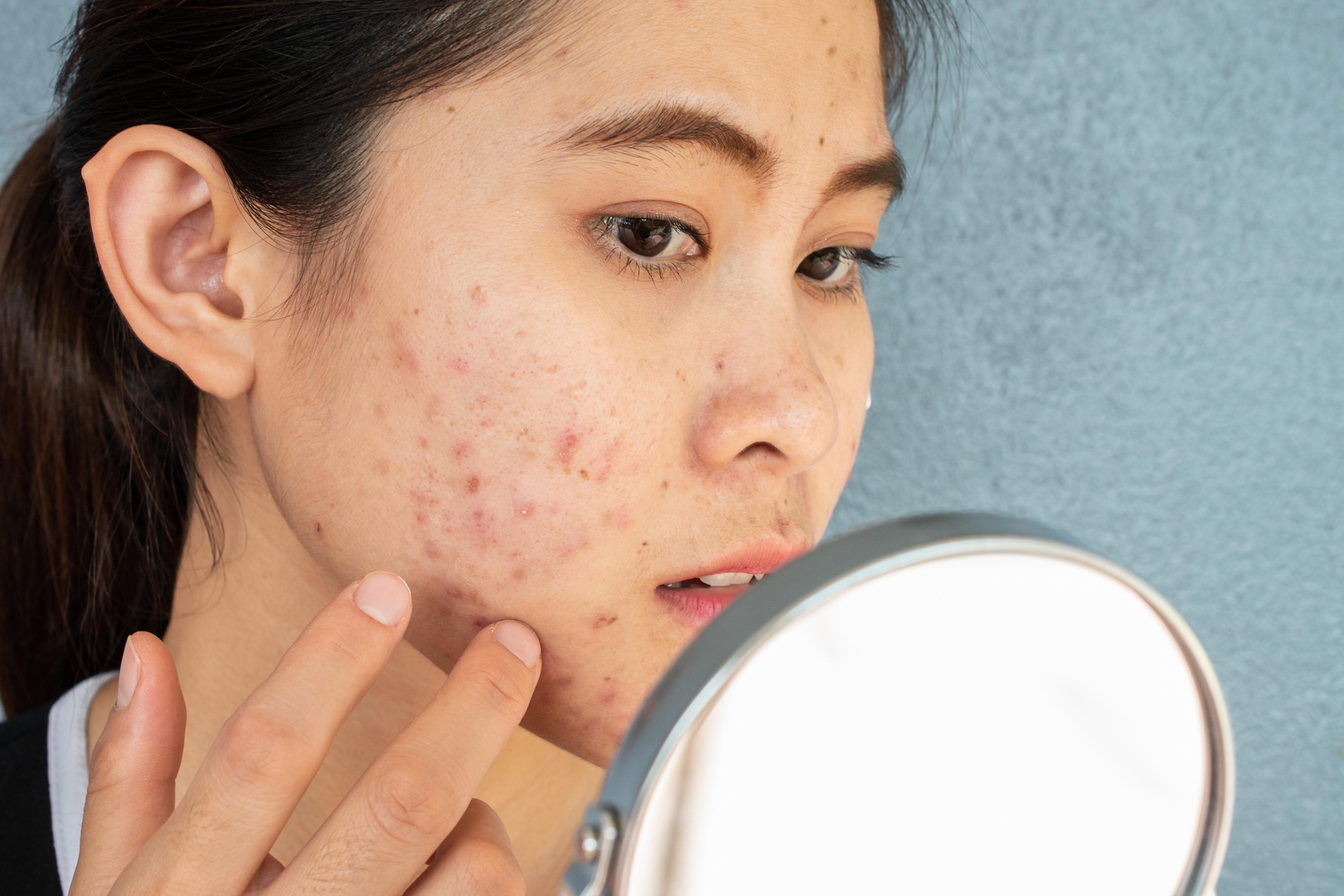Why Is My Skin Breaking Out All of a Sudden?
A Healthier Michigan
| 3 min read

Skin breaking out in acne or a rash can be scary, irritating and confusing especially if you are not sure what the cause is. Acne most commonly occurs during puberty, but up to 15% of adult women develop acne as well, according to the American Academy of Dermatology, and this rate has been increasing. Acne treatment and prevention is more than a billion-dollar industry in America.
Common causes of adult acne breakouts
The cause of acne is blocking or clogging of skin pores by a combination of dead skin cells and natural skin oil, or sebum. During puberty, the amount of oil produced increases or fluctuates which can lead to breakouts of acne. For adults, the most common causes for acne include side effects of medication, especially birth control, or hormonal changes brought on by menstruation, menopause or pregnancy.
Adult acne symptoms
The symptoms of acne vary and often develop together, or on different areas of the face and neck. According to the Mayo clinic, adult acne symptoms present as:
- whiteheads, or clogged pores that are closed
- blackheads, or clogged pores that are open
- pimples
- bumps and lumps under the skin
What to do for an acne breakout
Oftentimes the first response to an acne breakout is to examine personal hygiene or skin care routine but adding aggressive over-the-counter (OTC) acne medications without talking with your care team could irritate the skin and exacerbate acne symptoms.
The best first step is to make sure you are cleaning your face regularly, twice a day, to remove oil and makeup. Make sure you are doing this, and if acne persists, consider adding a retinoid cream, and anti-inflammatory topicals. These help to unclog pores and reduce the irritation brought on by acne, according to Johns Hopkins Medicine. Using these types of OTC medications is preferred to aggressive cleansers or masks and are gentler to your skin. For less aggressive cleansers, look for those that use salicylic acid and benzoyl peroxide, which help to bring out oil from the skin and kill bacteria.
Treatment for adult acne
If acne symptoms persist after changes to your routine and hygiene, and the listed OTC medications, you will need to discuss treatment options with your primary care team. Other treatments for acne include:
- blue light or natural light therapy
- chemical peels
- antibiotic medications
Does my diet affect my acne?
While your diet is not likely to be the culprit for adult acne, changing your diet can help to keep some acne symptoms in check. According to Johns Hopkins Medicine, some recommended foods to avoid for adult acne include:
- excessive sugars
- sodas
- desserts and candies
- excessive dairy products
Foods to add or increase in your diet include:
- leafy greens
- fruits and vegetables
- vitamin C and beta-carotene
Related Links:
Image Credit: Getty Images





